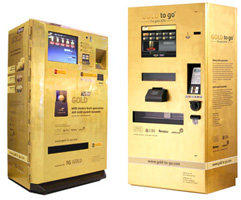University of Southern California computer scientists hope that as many users as possible download and try it in order to improve the software.
Currently, the download works for smartphones running the Android system and soon will be widely available on Android app sources. An iPhone app is in the works.
The basic principle of the Visibility app is simple, according to the paper documenting the work by USC computer science professor Gaurav Sukhatme.
The user takes a picture of the sky while the sun is shining, which can be compared to established models of sky luminance to estimate visibility.
Visibility is directly related to the concentration of harmful "haze aerosols," tiny particles from dust, engine exhaust, mining or other sources in the air. Such aerosols turn the blue of a sunlit clear sky gray.
There is one caveat ” It has to be the right picture. The visibility/pollution models are based on the viewing geometry of the image and the position of the sun.
The Visibility app works because modern smartphones contain a rich set of sensors that include cameras, GPS systems, compasses and accelerometers, in addition to the powerful communication capabilities that are inspiring a slew of intelligent phone applications ranging from personal health monitoring to gaming and social networking.
Sameera Poduri, a postdoctoral researcher in Sukhatme''s lab, explained that the accelerometer in the phone - the sensor that tells how the user is holding the phone, determining whether it displays information vertically or horizontally - can "guide the user to point the camera in exactly the right direction."
The picture must be all or mostly sky, which makes a contribution from human user judgment critical.
"Several computer vision problems that are extremely challenging to automate are trivially solved by a human. In our system, segmenting sky pixels in an arbitrary image is one such problem. When the user captures an image, we ask him [or her] to select a part of the image that is sky," noted the research paper.
The accelerometers and the compass on the phone capture its position in three dimensions while the GPS data and time are used to compute the exact position of the sun.
The application automatically computes the camera and solar orientation, uploading this data along with the image ” a small (100KB) black-and-white file ” to a central computer.
The central computer analyzes the image to estimate pollutant content and returns a message to the user, as well as registering the information. (User identities are anonymized)
The system potentially can help fill in the many blanks in the existing maps of air pollution.
So far the results are promising, but they indicate that several improvements are possible.
Sukhatme said: "We''re sure we can improve it if we get people trying it and testing it and sending data."







